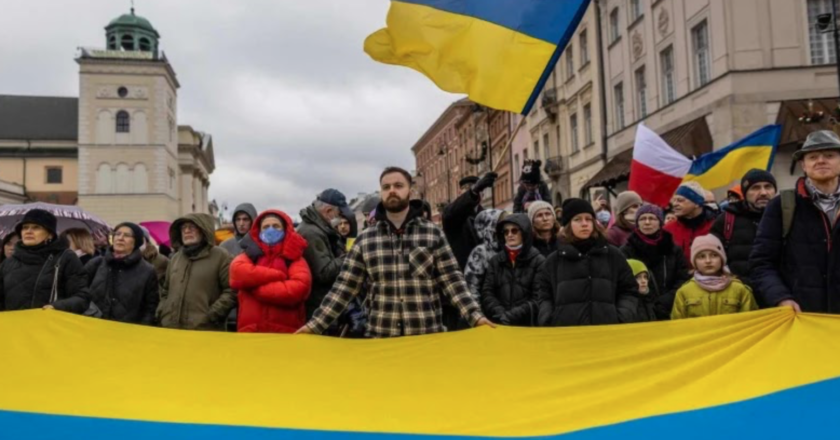The war between Russia and Ukraine has historians and citizens pondering what the lasting effects of this conflict might be.
In the past few weeks, the lives of many were drastically changed after hearing the alarming news that is continuing to shake the world. Beginning on Feb. 24, Russia’s President, Vladimir Putin, organized an all-out invasion of Ukraine, heightening tensions and severely escalating the war between the two nations. According to CNN’s Barbara Starr, this organized military strike by Russia was the largest military attack in Europe since World War II. This startling move by Putin has Ukrainian citizens in turmoil, and fear has gripped many as they work to leave their country. According to BBC News, nearly two million citizens have escaped the attacks from Russia, seeking refuge in westward countries such as Poland and Romania. Citizens have had to leave their homes, the majority of their belongings, and their entire lives behind as they make their journey to safety.
On the front lines are Ukrainian soldiers, fighting for their lives and for their homeland, as well as the President of Ukraine, Volodymyr Zelensky. Zelensky refuses to leave Ukraine even though assassination by Russian forces is a risk. The Ukrainian president has made several emotional statements at the United Nations General Assembly. President Zelensky tells the world that he will remain by his people’s side, and argues that Ukraine is fighting on behalf of democracy and freedom. On Twitter, he tweets, “This is not just Russia’s invasion of Ukraine. This is the beginning of a war against Europe, against European structures, against democracy, against basic human rights, against a global order of law, rules, and peaceful coexistence.”
Dr. Adam Wilsman, Upper School history teacher, participated on the panel discussing recent events between Russia and Ukraine. Since Ukraine is not a NATO country, Dr. Wilsman says a third World War is “highly unlikely.” With Putin’s aggressive actions, many citizens question what Putin’s ultimate goal is. Dr. Wilsman comments on the rumors of further conquest, saying that Putin is “rational enough to not invade a NATO country.”
A visit from Brigadier General Zwack also helped inform students about the conflict. Sofia Eichsteadt ‘22, along with four other students, helped to put together a Zoom meeting with Brigadier General Zwack. She says that he talked about the “unlikely chance Putin would choose to invade further countries.”
After pressure was put on Russia by economic sanctions, CNN states, “the Russian central bank more than doubled interest rates to 20%, and the Moscow stock exchange was shuttered for the day.” The Russian ruble has crashed to new lows against the US dollar. Dr. Wilsman looks at these effects and says that the advisors of Putin will strongly instruct him to not continue the war, as their income might also be affected.
Eichsteadt says that Brigadier General Zwack also talked about the population’s agreement with Putin’s invasion. The Washington Post states, through a telephone survey that “23 percent oppose” the conflict, many of them being in the younger age range. World War II and the Cold War was a cause for many of the Russian’s agreement with the war. They believed the West hated them and much of the population were agreeable to sacrifice for the war.
However, Putin might also be trying to turn the war around. The US and many NATO countries offer support for Ukraine. China is one of Russia’s biggest suppliers, and has not stopped trade with Russia. Over the years, China and Russia have built a rapport due to both of these countries’ dislike towards the US. With this common dislike towards a country who is a strong ally of Ukraine, China could join the war on the Russian’s side. This would be one of the biggest factors to start World War III. However, China has helped Ukrainians escape and take refuge in other parts of Europe.
The Ukraine vs. The Russian war has impacted the lives of many, and the effects of the war will last for a long time to come. As this continues, we have to wonder what will be the outcome of the bombs and fighting.
Editor’s note: This is a constantly developing story. All information in this story is as of March 19, 2022.

